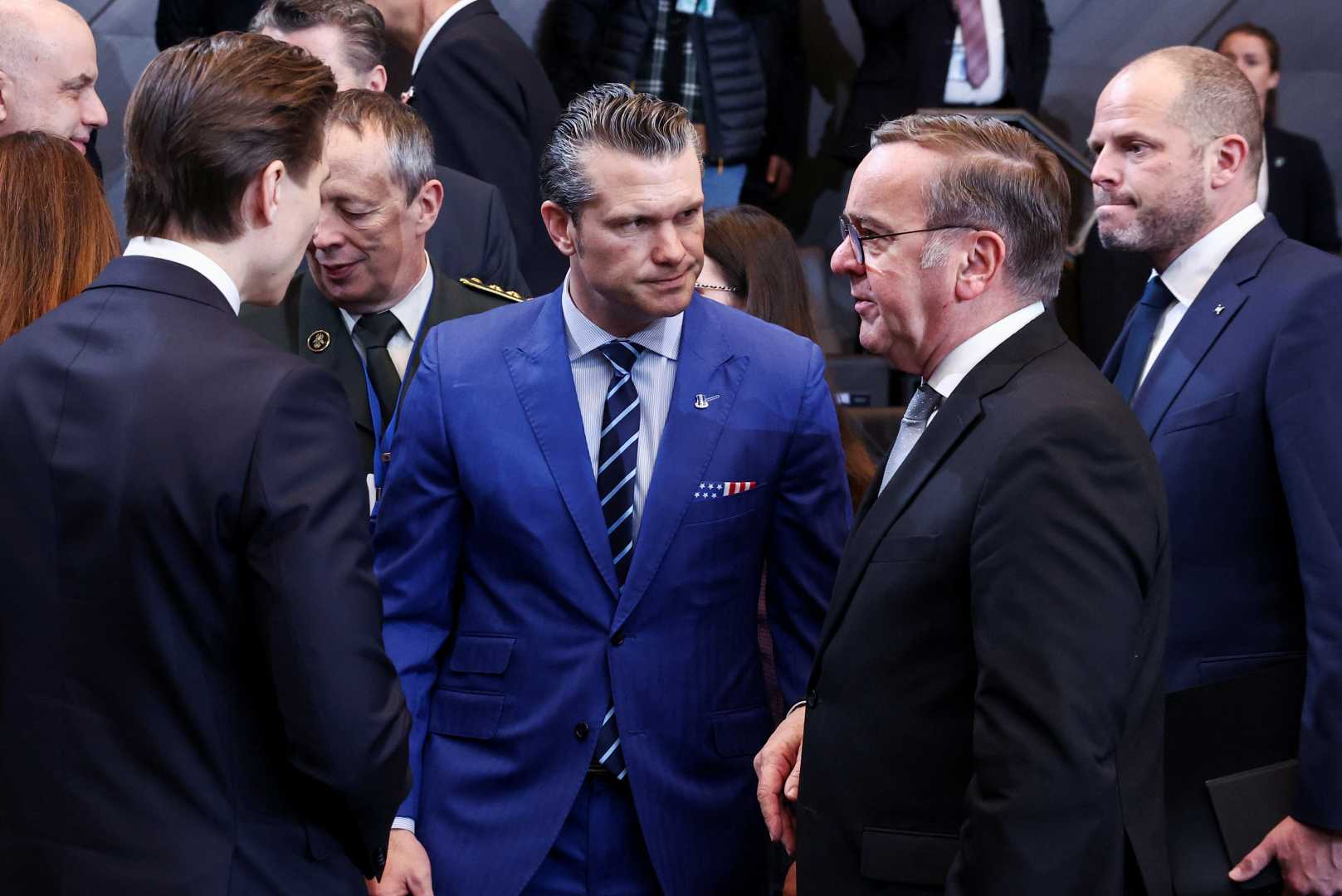World
European Leaders Push for Influence in Ukraine Peace Talks Amid U.S. Isolation

PARIS — European leaders convened Monday at the Elysee Palace amid rising tensions following recent U.S. shifts in foreign policy towards Ukraine. The leaders from Germany, the United Kingdom, Italy, Poland, Spain, and others expressed their urgent desire for a role in the ongoing negotiations regarding Ukraine, which many feel leaves them sidelined. The summit highlighted a clear divide between European nations and the U.S., reflecting fears over the implications of America’s evolving stance.
Prime Minister Keir Starmer of the UK asserted the necessity of a U.S. security guarantee to effectively deter any further actions from Russia against Ukraine. “A U.S. backstop is essential; it’s the only way to effectively deter aggression,” he stated. Starmer also indicated readiness to consider deploying British troops to Ukraine pending a durable peace agreement.
Discussions at the Paris meeting were intensively focused on the prospects of potential peacekeeping forces. While some nations, particularly Poland, expressed reluctance to participate militarily in Ukraine, French President Emmanuel Macron remained more open-ended, indicating conversations about European troop contributions are ongoing.
“We seek a strong and lasting peace in Ukraine. To achieve this, Russia must end its aggression,” Macron remarked, emphasizing the need for credible security guarantees for Ukraine.
However, tensions bubbled just beneath the surface. German Chancellor Olaf Scholz contended that proposals for deployment should not be forced upon Ukraine, reaffirming that any peace agreement must be a collaborative effort involving Ukraine’s input. “Peace cannot be dictated, and Ukraine must not accept terms it has not agreed to,” he stated.
These internal disagreements came in the context of recent comments from U.S. officials, suggesting that Washington might embrace talks with the Kremlin while excluding European allies from the negotiation table. Gen. Keith Kellogg, special envoy for Ukraine and Russia under the Trump administration, remarked, “We know how that can turn out, keeping it clean and fast as we can is our aim,” further underpinning fears in Europe over being left out of crucial dialogues.
Moreover, the urgency surrounding Europe’s military readiness has been accentuated by previous U.S. pressures to bolster defense spending. As discussions wander towards European troops on the ground, national leaders have emphasized the pressing need for coherent strategy. “There is unanimity on the necessity for increasing defense budgets across EU members,” Tusk highlighted, pointing out Poland’s significant commitment of over 4% of its GDP to defense, the highest among NATO members.
Despite these strategic discussions, Germany’s hesitance to commit to troop deployment reflects wider national apprehensions about the implications of military involvement. Political elites fear backlash from the electorate over military and fiscal sacrifices. This dilemma is further complicated by historical contexts and sentiments surrounding troop presence in Ukraine.
Meanwhile, Spanish Prime Minister Pedro Sánchez reassured unwavering support for Ukraine while emphasizing the need for EU involvement in any peace talks. Concerns linger, however, regarding Spain’s relatively low defense spending, just 1.28% of GDP, as pressure mounts for member states to step up their military commitments.
The Baltic states have expressed eagerness to lead the charge for increased defense cooperation in Europe, urging for accelerated military integration with Ukraine. Lithuanian Foreign Minister Kęstutis Budrys argued for an international framework merging Ukraine’s defense into broader European security considerations. Each Baltic nation champions above-average defense spending, promising contributions to Ukraine’s military backbone.
Ultimately, this critical juncture poses a significant challenge for European unity and strategy in the face of shifting American priorities. As French President Macron summarized, the developing situation demands intensive cooperation and strategic introspection among European nations.












